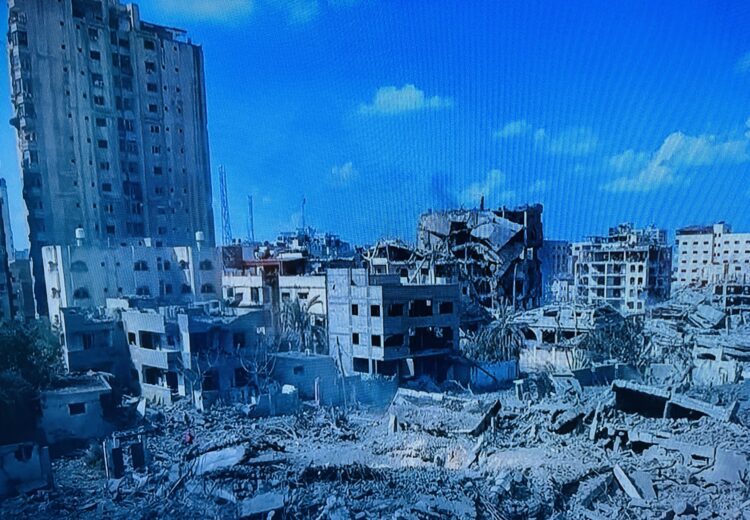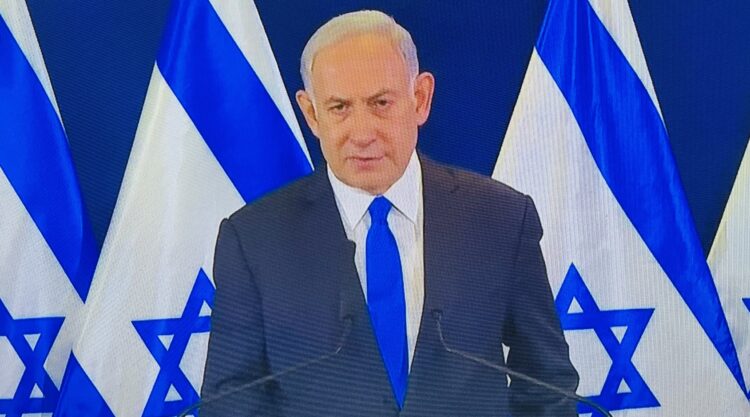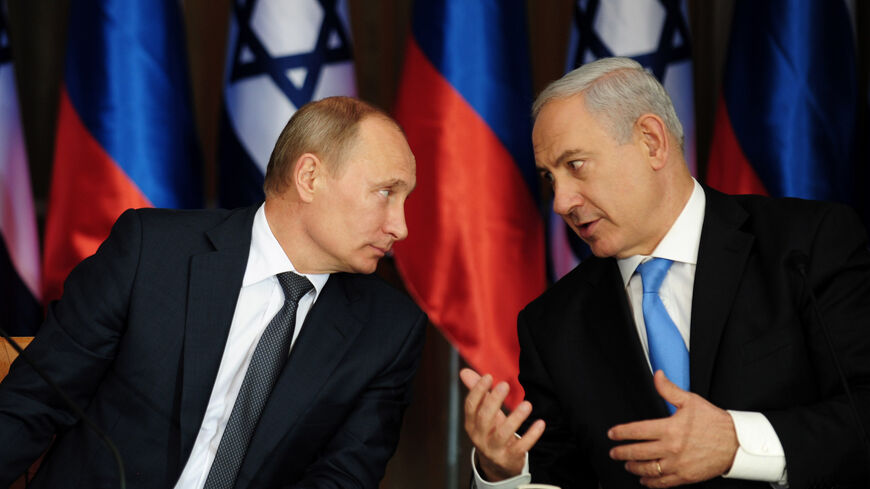Russian President Vladimir Putin’s response to Hamas’ ferocious terrorist attack on Israel last week, the worst in Israeli history, has left the Israeli government bitterly disappointed and most likely disillusioned.
Neither Putin nor Foreign Minister Sergei Lavrov have directly condemned Hamas nor have they phoned Prime Minister Benjamin Netanyahu to express their condolences for the deaths of 1,300 Israelis, who were slaughtered by Hamas gunmen in a murderous and unprecedented rampage through southern Israel on October 7.
Instead of displaying empathy or sympathy for Israel, Putin lashed out at the United States, Russia’s superpower rival. “This is a clear example of the failure of U.S. policy in the Middle East,” he said in televised comment as he sat next to Iraq’s prime minister, Mohammed Shia al-Sudani.
A day later, Putin spoke of the importance of resolving Israel’s conflict with the Palestinians by means of a Palestinian state with East Jerusalem as its capital.
Speaking at at an Arab League meeting, Lavrov said he was “deeply concerned that hundreds of Israelis and Palestinians have died and that the Gaza Strip has been declared a target for Israeli retaliation.”
Tellingly enough, Lavrov did not accuse Hamas of aggression or mass murder.
Russia has called for an immediate ceasefire, and according to Al Jazeera, the Russian ambassador at the United Nations reportedly blocked the text of a Security Council resolution condemning Hamas.
In his latest remarks on the current Gaza war, which already has claimed the lives of more than 2,000 Palestinians, Putin softened his tone. He called for a negotiated solution to Israel’s conflict with the Palestinians, while acknowledging Israel’s right to self-defence and “peaceful existence” in the face of Hamas attacks of “unprecedented brutality.”

It is clear that Russia’s position is related to the war in Ukraine, which broke out with the Russian invasion of Ukraine in February 2022. Much to the West’s derision, Russia justified its “special military operation” on the grounds that Ukraine needed to be “demilitarized” and “denazified.”
The United States and its allies, including Israel, condemned the invasion. But in an attempt to preserve its relations with Russia, Israel has refrained from sending military aid to Ukraine or imposing economic sanctions on Russia.
Israel, however, has provided Ukraine with humanitarian assistance and helmets. Israel has also promised to help Ukraine build an air defence system to fend off Russian missile and drone strikes, which have killed countless Ukrainian civilians.
Israel’s careful balancing act has not satisfied Volodymyr Zelensky, the first Jewish president of Ukraine. Time and time again, he has pleaded with Israel, in vain, to send Ukraine the Iron Dome missile defence system. Ukraine’s ambassador to Israel has repeatedly complained about Israel’s attitude.
Four months ago, the Ukrainian Foreign Ministry claimed that Israel had embarked on “a path of close cooperation” with Russia and was ignoring the suffering of Ukrainian Jews under Russian bombardment of Ukrainian cities.
Israel’s cautious policy with respect to the war in Ukraine is rooted in its desire to preserve its important 2015 deconfliction agreement with Russia in Syria, Russia’s chief Arab ally in the region. It essentially enables the Israeli Air Force to bomb Iranian, Hezbollah and Syrian military sites in Syria without an armed Russian response.

Netanyahu, who was instrumental in negotiating it, visited Russia about a dozen times to ensure its maintenance. In the process, he developed a friendly personal relationship with Putin.
Putin, though, has been less than satisfied with Israel’s somewhat neutral stance regarding the war in Ukraine. In an unmistakable sign of Israel’s strained relations with Russia, the Russian government threatened to shut down the Jewish Agency in Russia, which facilitates the immigration of Russian Jews to Israel.
Putin, too, has expressed disappointment with Israel’s rejection of his patently false claim that Ukrainian leaders are “Nazis.” And he has blasted Zelensky, saying that his “many Jewish friends” have told him that he is “a disgrace to the Jewish people.”
Russia, in the meantime, has drawn closer to Iran, Israel’s deadliest enemy. In recent months, Russia has bought armed drones from Iran and signed a series of economic agreements with the Iranian government.
While Russia’s relations with Israel have grown chilly of late, Ukraine has rallied behind Israel. In a recent speech to the NATO alliance, Zelensky claimed that Russia and Hamas represent the “same evil” and urged its member states to support Israel.
The gradual deterioration of Israel’s relations with Russia is clearly detrimental to Israeli interests.
During the heyday of their relationship, Putin was widely seen as being friendly to Israel. Some observers even regarded him as the first philosemitic president of Russia. He has visited Israel twice, and on his last trip, he unveiled a memorial to the Russian victims of Nazi Germany’s siege of Leningrad during World War II.
Putin has visited a Jewish museum in Moscow, and he approved visa-free travel between Russia and Israel. In addition, he facilitated the transfer of Zachary Baumel’s remains to Israel. Baumel, an Israeli soldier, was killed in Syria during Israel’s invasion of Lebanon in 1982. That gesture impressed Netanyahu, who said, “I want to thank you, my friend, for what you have done.”
These Russian gestures of goodwill toward Israel seem like an aberration today, but it should not be forgotten that the Soviet Union — the successor state of Russia which collapsed in 1991 — was consistently pro-Arab and usually hostile to Israel.
Putin broke with that anti-Israel tradition, but due to the war in Ukraine, Israel’s relations with Russia have sunk to a new low.
